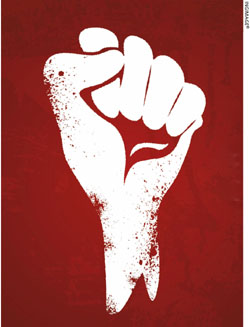PURSUIT OF EXCELLENCE
PLAYING TO OUR STRENGTHS
Archana Law encourages us to focus on our strengths rather than weaknesses

Newspaper columnist Ann Landers was once asked: “Out of the thousands of letters you receive each month, what is the most dominant problem in people’s lives?” She replied without any hesitation: “It is fear!”
Fear of losing wealth or loved ones, being ourselves, making wrong decisions, failure, commitments, rejection and sometimes life itself keep most of us from living the life of our dreams. Often, we do not even realise that this fear bondage can turn our hopes of financial freedom and loving relationships into a pattern of procrastination, self-sabotage and other bad habits.
Our working life too seems to revolve around ‘want,’ ‘lacking,’ ‘problems,’ ‘feedback accentuating the negatives’ and ‘opportunities for improvement’ – the sting of criticism lasts longer than the balm of praise.
Multiple studies have revealed that people pay particular attention to negative information – when asked to recall important emotional events, they remember four negative memories for every positive one. Similarly, when they’re asked to name their strengths, only about a third can readily do so.
Could this simply be a reflection of natural reserve? Or is it that we don’t really know what our strengths are?
So what are your strengths?
In everyday conversation, people are generally modest and reluctant to talk about their strengths. And so they tend to rely on formulaic answers that are designed to create a positive impression, which may improve their prospects of success at interviews.
In his book titled Now, Discover Your Strengths, Marcus Buckingham says that most organisations are built on two flawed assumptions about people: each person can learn to be competent in almost anything and every one’s greatest room for growth is in his or her areas of greatest weakness. He argues that knowing your strengths is vital to being more productive and happier.
But keep in mind that a strength isn’t simply something at which you are good. It is also something that makes you feel strong. To quote Eric Liddell from the movie Chariots of Fire, who expresses this succinctly: “I believe that God made me for a purpose but He also made me fast. When I run, I feel His pleasure.”
And the definition of a weakness is similar: though you may be good at an activity and even good enough, it may not make you feel strong and in fact make you feel weak!
According to Buckingham’s research, the truth is that many people are reluctant to build on their strengths. Many don’t concern themselves with the intricacies of their strengths; instead, they devote their time and energy to investigate their weaknesses.
When asked what would help them improve the most – the knowledge of their strengths or weaknesses – 41 percent preferred strengths in the United States. And the least strengths-focussed cultures were Japan and China (with only 24% choosing strengths).
But these insights require an explanation. For many of us, the fear of our weaknesses seems to overshadow our confidence in our strengths.
For example, if we excel at selling but struggle with strategy, it is our difficulty with the latter that receives the most attention because an inability to think strategically will surely hurt us somewhere down the line, won’t it?
And if we build trusting relationships with ease but falter when it comes to making presentations, we sign up for the ubiquitous public speaking class – because public speaking is a prerequisite for success, right?
So we postpone living by leaving the best (such as being more loving and kinder) for when we have more time, to complete the pressing projects that are consuming us… and things slow down.
And we promise ourselves that we will get into world-class physical shape and consume healthier food when there is less work. And the days slip into weeks, weeks into months and months into years. And when they’re on their deathbed, most people have the same regrets: they did not take enough risks, realise their highest personal potential, or give or get more love.
So using a very simple tool – the right mindset – let our strengths grow out of our weaknesses as Ralph Waldo Emerson would say. I’m not talking only about the power of positive thinking (which I believe is a great tool for anything) but figuring out ways that break through our limitations and fears.
Every one of us has weaknesses, of course. Activities that are effortless for some may be frustratingly difficult for others. And if these weaknesses interfere with our strengths, we need to develop strategies to manage them.
But casting a critical eye on our weaknesses and working hard to manage them will only help us prevent failure; it will not help us reach excellence. It is only by understanding and cultivating your strengths that you will achieve excellence.




